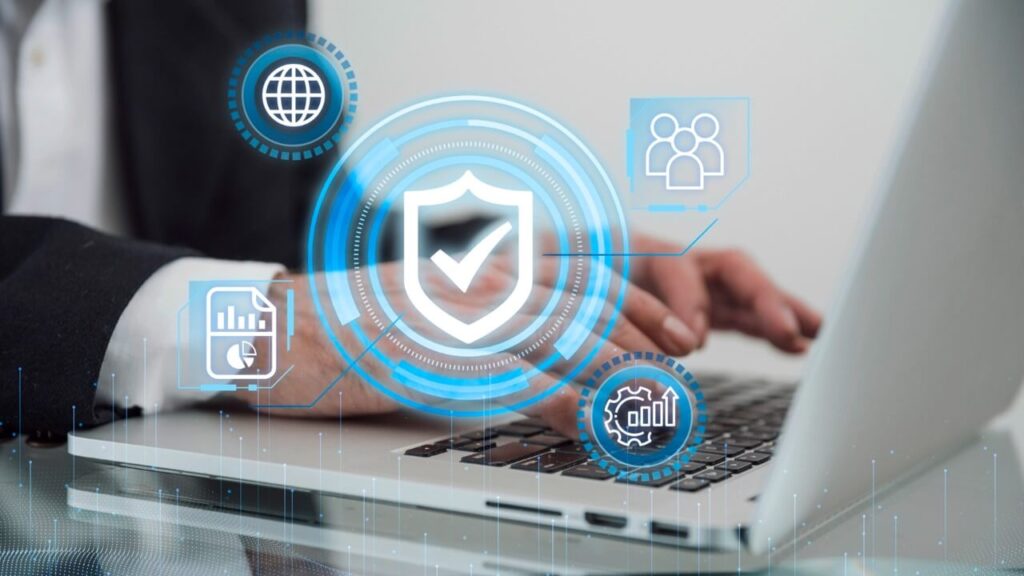At SQC, our comprehensive Lead Auditor Training Program provides essential auditing skills and industry-recognized expertise, aligned with globally recognized standards. Designed for professionals across diverse industries, this training prepares you to lead audits with confidence and precision.
Take the next step in your career and become a certified Lead Auditor with SQC— ensuring compliance, enhancing organizational performance, and unlocking new professional opportunities.

What is a Lead Auditor?
A Lead Auditor is a certified professional responsible for planning, conducting, and overseeing audits to ensure an organization’s compliance with international standards such as ISO 9001 or ISO 45001, as well as regulatory requirements, and organizational goals.
Lead Auditor assesses an organization’s adherence to protocols, identifies areas for improvement and provides actionable insights. Their expertise helps organizations maintain compliance, minimize risks, and drive continuous improvement in quality and performance.
The Importance of the Lead Auditor Role
In today’s dynamic business landscape, compliance and operational efficiency are essential for long-term success. Lead Auditors play a key role in ensuring organizations meet industry standards and continuously improve their processes by
Ensuring Compliance
Lead Auditors ensure organizations comply with external regulations and internal standards, minimizing legal and financial risks while upholding industry compliance.
Risk Management
By identifying potential risks early and implementing corrective actions, Lead Auditors help organizations mitigate issues before they escalate, safeguarding business operations.
Strategic Development
Lead Auditors provide strategic insights that influence high-level decision-making and planning, highlighting potential areas for growth and necessary strategic adjustments.
Maintaining Quality Standards
Lead Auditors ensure organizations uphold high standards across all operations, from product quality to service delivery. They also help achieve and sustain essential industry certifications, such as ISO standards.
Becoming a Certified Lead Auditor in Malaysia: What You Need to Know?
An ISO Lead Auditor is a certified professional responsible for assessing and auditing an organization’s management system using internationally recognized standards, auditing principles and techniques.
To become a Lead Auditor in Malaysia, individuals must complete formal training and obtain certification in their chosen ISO management system. SQC’s in-house training programs provide the in-depth knowledge and practical skills needed to conduct audits effectively and ensure compliance with specific ISO standards.

Key Industries Where a Lead Auditor is Essential
The role of a Lead Auditor is crucial in industries that require strict compliance with ISO standards and regulatory frameworks. Here are some key sectors where Lead Auditors play a vital role:
- Manufacturing: Ensuring product quality, safety, and efficiency through standards like ISO 9001 and ISO 14001.
- Healthcare Providers: Upholding patient safety and operational excellence, often through ISO 13485 (Medical Devices) and ISO 45001 (Occupational Health and Safety).
- Finance and IT Security: Protecting sensitive data and ensuring robust information security management with standards like ISO 27001.
- Food and Beverage Sector: Maintaining food safety and quality through standards like ISO 22000 (Food Safety Management).
- Retail and Supply Chain: Auditing supply chain management systems to ensure efficiency and compliance with ISO 28000 standards.
- Laboratories and Research Institutions: Ensuring accuracy, reliability, and competence in testing and calibration with ISO/IEC 17025 (Laboratory Management Systems).
Internal and External Auditing Processes
Internal Audits
Lead Auditors conduct internal audits to evaluate an organization’s processes, controls, and compliance with internal policies and ISO standards. These audits involve various methodologies, including interviews, process walkthroughs, document reviews, and control testing, to identify risks, inefficiencies, and areas for improvement. Internal audits help organizations enhance operational efficiency, mitigate risks, and ensure continuous improvement.
External Audits
For external audits, Lead Auditors ensure that audits are conducted in compliance with external guidelines and regulatory frameworks. These audits often involve techniques like analytical procedures, substantive testing, and inquiry to evaluate financial statements and related disclosures, providing assurance to external stakeholders.
Qualifications for a Lead Auditor
A Lead Auditor must possess a comprehensive understanding of auditing principles, ISO standards and industry-specific regulatory frameworks. This expertise ensures audits are conducted accurately, efficiently, and in compliance with legal and industry requirements.
Professional certifications are essential for credibility and competence in the auditing field. Becoming a certified Lead Auditor validates expertise in audit procedures, compliance standards, and risk management, equipping professionals to lead audits effectively.
SQC is an approved training licensee of IQCS Certification, offering specialized training that equips auditors with the necessary skills, practical knowledge and certification opportunities to advance their careers.

Lead Auditor Training Courses
SQC’s Lead Auditor Training equips individuals with the expertise to conduct and manage first-party (internal), second-party (supplier), and third-party (independent) audits, ensuring compliance with various ISO standards.
ISO 9001: Quality Management Systems Lead Auditor
Master auditing principles for quality assurance, customer satisfaction, and process efficiency, ensuring organizations consistently deliver high-quality products and services.
ISO 14001: Environmental Management Systems Lead Auditor
Gain expertise in environmental risk management, regulatory compliance, and sustainability practices to help organizations minimize their environmental impact.
ISO 45001: Occupational Health and Safety Management Systems Lead Auditor
Learn to assess and improve workplace safety, reduce occupational risks, and enhance employee well-being through structured health and safety management.
ISO 27001: Information Security Management Systems Lead Auditor
ISO 27001 Lead Auditor focuses on protecting sensitive information, managing cybersecurity risks and ensuring data integrity, confidentiality, and availability.
Key Components of Lead Auditor Training
Mastering ISO Standards
Gain a comprehensive understanding of ISO standards, their principles and real-world applications. This knowledge enables auditors to evaluate, implement, and enhance management systems with confidence.
Audit Planning and Execution
Learn to develop detailed audit plans and gather the necessary documentation to execute audits systematically and effectively.
Leading an Audit Team
Enhance leadership and communication skills to manage and coordinate audit teams effectively. Training covers task delegation, resource management, and collaboration strategies to ensure smooth and productive audits.
Writing Effective Audit Reports
Learn to create clear, concise, and actionable audit reports. This component ensures findings are documented professionally, providing valuable insights for organizational improvement.

Certification Process for Lead Auditor
- Duration: The certification process varies based on the chosen ISO standard and the candidate’s preparedness. Typically, training programs range from a few days to several weeks, followed by an examination and audit assessment. For more information or to schedule a training session, please visit our Training Programmes.
- Requirements: Organizations must demonstrate adherence to the relevant ISO standard’s criteria through documented procedures and successful audit outcomes. This includes establishing an effective management system and showing continuous improvement.
- Recognized Accreditation Bodies: Accreditation ensures that the certification is widely accepted and conducted by a competent, impartial body. Certifications are typically issued by recognized accreditation organizations such as IRCA (International Register of Certificated Auditors) or equivalent industry-recognized bodies.
Essential Skills for a Successful Lead Auditor
A successful Lead Auditor requires a combination of technical expertise and interpersonal skills to conduct effective audits and drive organizational success. Key skills include:
Comprehensive ISO Knowledge
A Lead Auditor must have a deep understanding of ISO standards, including their principles, requirements, and application across industries. This knowledge allows auditors to assess compliance accurately and identify areas for improvement.
Proficiency in Audit Techniques and Tools
Effective auditing requires strong planning, execution, and management skills using industry-standard methods and tools. Lead Auditors must ensure audits are conducted thoroughly, efficiently, and in line with best practices.
Strong Analytical & Communication Skills
Critical thinking, problem-solving, and leadership are essential for evaluating processes, making recommendations, and managing audit teams. Clear communication ensures effective collaboration with stakeholders at all levels.
Career Advancement Opportunities
Lead Auditors can advance in various industries, specializing in specific ISO standards, moving into senior auditing roles, or transitioning into consulting, training, or executive positions such as Compliance Officer or Quality Manager.

Why Choose SQC for Lead Auditor Training
SQC is a trusted leader in Lead Auditor Training, offering comprehensive training, expert guidance and ongoing support to help you succeed in the auditing field:
Step-by-Step Guidance with Post-Course Mentorship
Our structured training provides clear, step-by-step guidance, ensuring you gain a solid understanding of the auditing process. With post-course mentorship, you’ll receive continued support to apply your skills confidently in real-world settings.
Expert Tutors from Diverse Sectors
Learn from experienced professionals and expert consultants with extensive experience across various industries. Their practical insights and in-depth knowledge will equip you to conduct audits effectively across diverse industries.
Ongoing Training and Skill Development
Stay ahead of evolving industry trends and ISO standards with SQC’s ongoing training programs. We provide up-to-date learning resources to help you refine your skills and stay competitive in the field.
Affordable, HRDF-Claimable Courses
SQC’s Lead Auditor Training is cost-effective and HRDF claimable, making it accessible for Malaysian professionals and organizations looking to upskill. Our flexible payment options and HRDF eligibility ensure you receive high-quality training without financial burden.
At SQC, we ensure you’re fully equipped with the expertise, confidence, and credentials needed to excel as a Lead Auditor.
Become a Certified Lead Auditor with SQC
Gain the expertise to conduct effective audits, ensure compliance, and uphold industry standards with SQC’s Lead Auditor Training Program.
Our comprehensive training is designed to equip you with the knowledge, skills, and confidence needed to excel as a Lead Auditor. With expert guidance, structured learning, and ongoing support, you’ll be fully prepared to lead audits and drive organizational excellence.
Ready to become a certified Lead Auditor? Enroll in our training program today and take the next step in your professional journey!

